
January 22, 2025
On his first day in office, President Trump signed executive orders to restore his “Remain in Mexico” policy, revoke automatic citizenship for the children of immigrants who entered the country illegally, and declare a national border emergency. Additionally, the Senate recently passed the Laken Riley Act, which, in part, requires federal authorities to detain migrants accused of both violent crimes and non-violent crimes like shoplifting.
There is widespread public support for deporting immigrants who have been convicted of violent crimes. But there is less support for broader deportation efforts and trepidation about how deportations may be carried out.
The vast majority of adults favor deporting immigrants living in the United States illegally who have been convicted of a violent crime including 65% who strongly favor the policy and 18% who somewhat favor it. There is also broad support among people across the political spectrum with majorities of Democrats (79%) and Republicans (89%) in support.
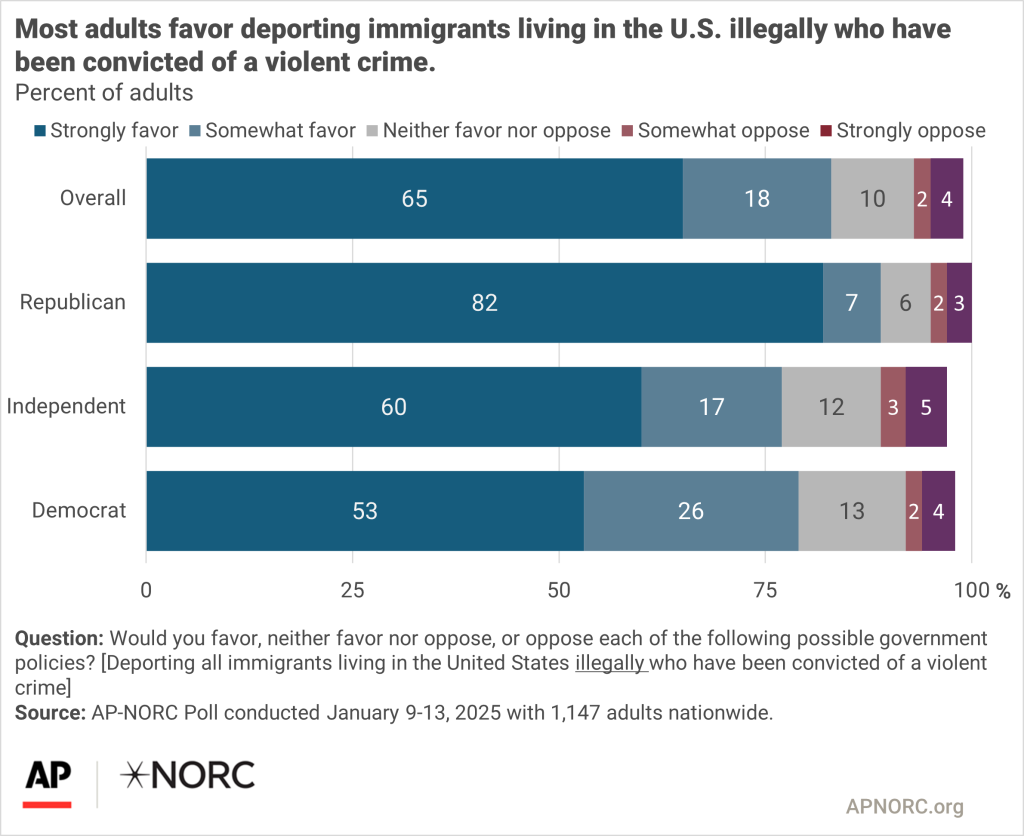
In addition, 7 in 10 favor deporting immigrants living in the United States legally who have been convicted of a violent crime. Fifty-two percent strongly favor such a policy while 17% somewhat favor it. Republicans are more likely than Democrats to strongly favor deporting immigrants living in the United States legally in such cases (69% vs. 40%).
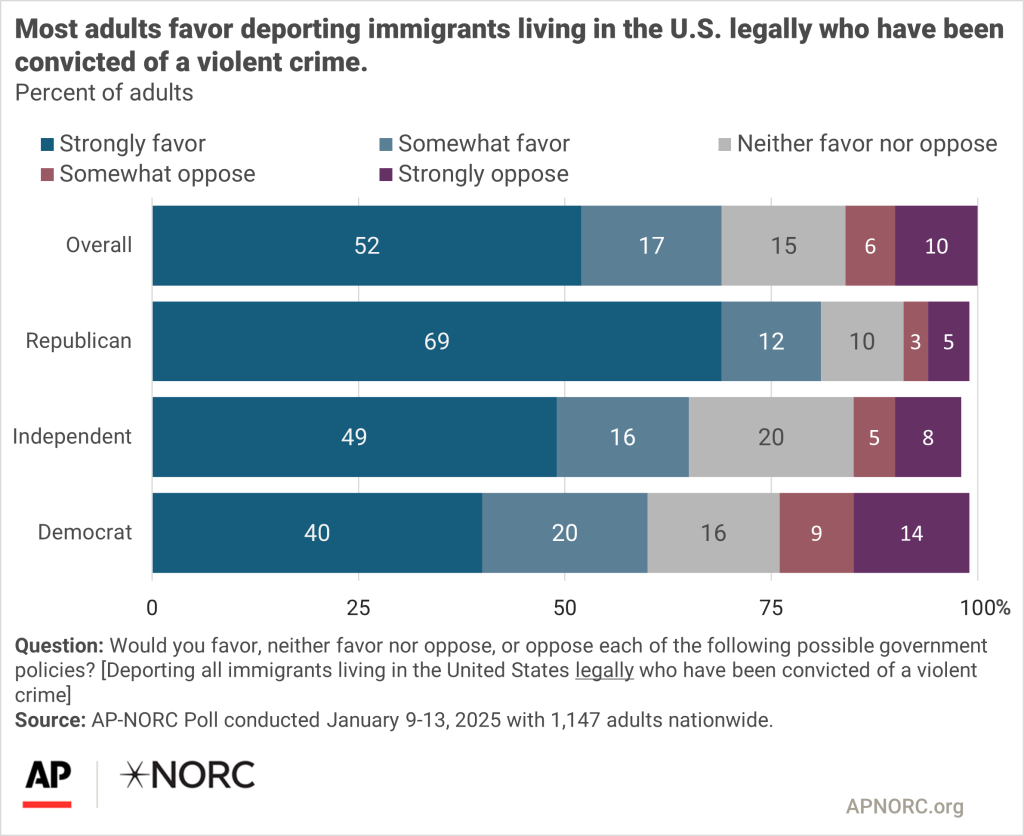

After his inauguration, Trump signed an executive order declaring a national border emergency. Fifty percent think increasing security at the U.S. southern border ought to be a high priority for the government. Only 17% feel this should be a low priority.
Opinions are more divided on addressing immigrants already living in the country illegally. Only 33% view deportation as a high priority for the government, while 36% see it as a moderate priority, and 29% consider it a low priority.
People also feel less urgency for expanding guest worker programs and allowing refugees into the country. Roughly a quarter feel these should be high priorities for the federal government.
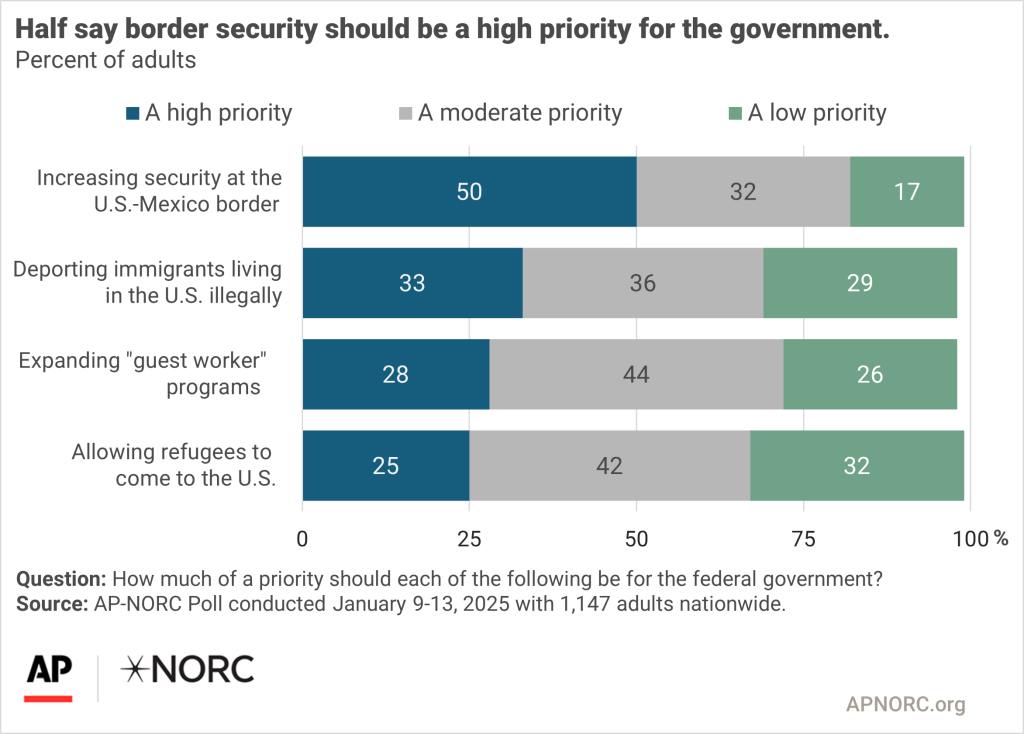
There are limits on the public’s support for deportations. Nearly two-thirds oppose separating children from detained parents entering illegally and 55% oppose deporting immigrants living in the country illegally if it results in separating them from their children who are citizens.
When it comes to deporting all immigrants living in the United States illegally, 43% support the policy and 37% oppose it.
Republicans are more likely than Democrats to support deporting undocumented immigrants generally (69% vs. 24%) and when separating them from their children who are citizens (48% vs. 14%). Republicans are also more likely than Democrats to support separating children from their parents when their parents are detained for entering the country illegally (30% vs. 8%).
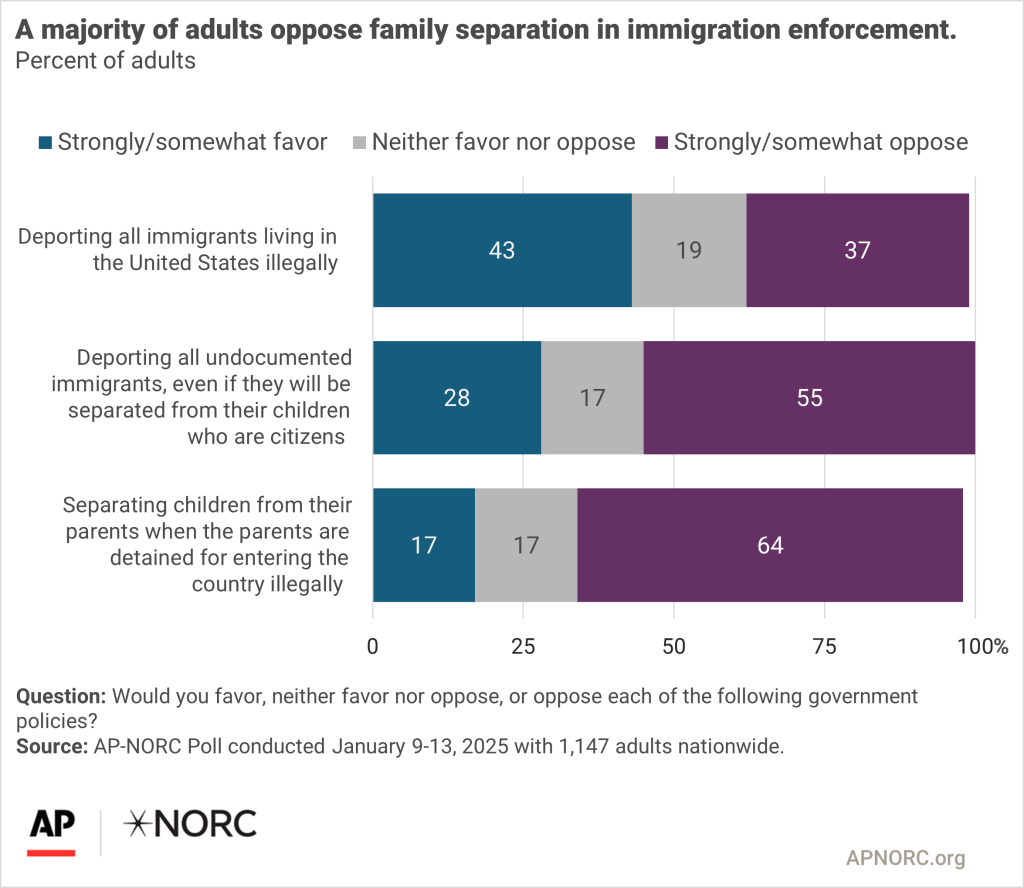
The public is also critical of certain tactics for arresting people in the country illegally. More than half of the public oppose policies for arresting children in the country illegally while they are at school or arresting individuals in the country illegally while they are at church. About half oppose making arrests in a hospital.
Republicans are more supportive of these policies than Democrats, but there is not broad support across the party.
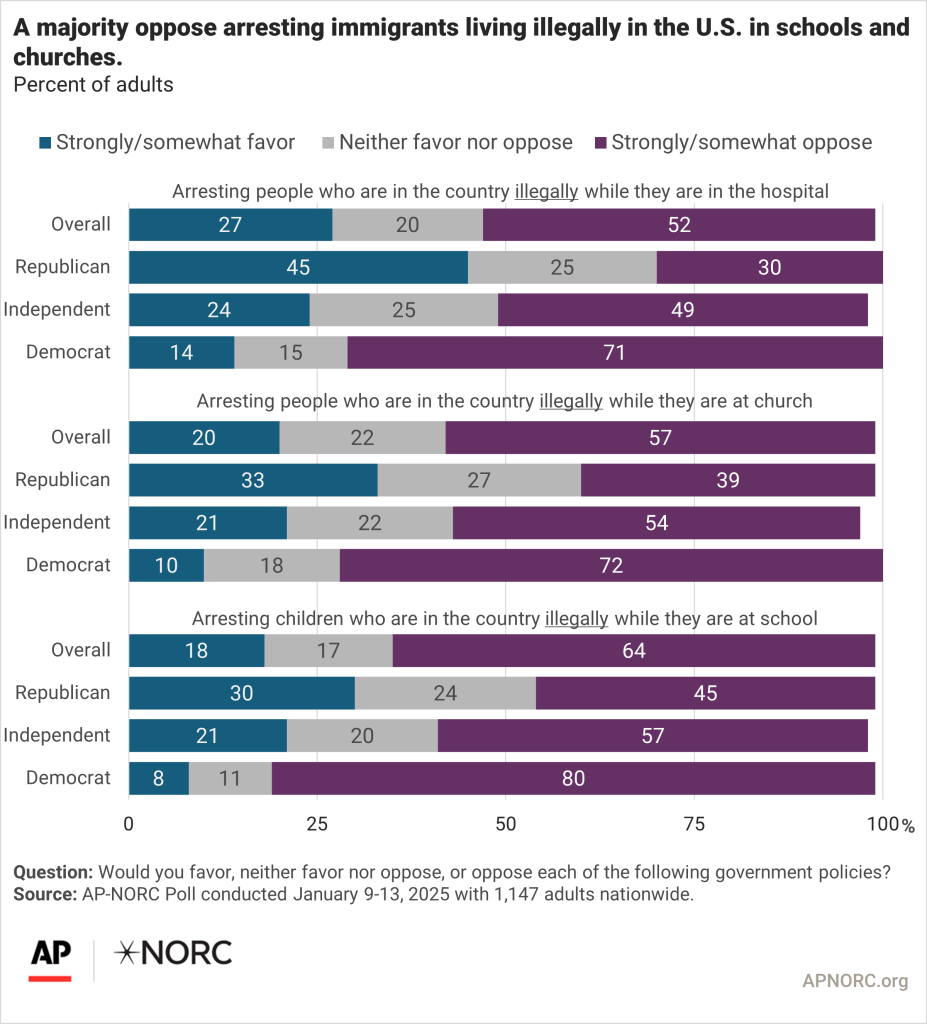
The public is divided on whether local police should work with federal immigration authorities on deportation efforts. While 42% believe they should always cooperate, 49% think cooperation should be limited to certain cases, and only 8% say local police should never cooperate.
Republicans are significantly more likely than Democrats to believe local authorities should always cooperate with federal immigration authorities (67% vs. 25%). And white adults are more likely than Hispanic adults to hold this view (46% vs. 32%).
The nationwide poll was conducted January 9-13, 2025 using the AmeriSpeak® Panel, the probability-based panel of NORC at the University of Chicago. Online and telephone interviews using landlines and cell phones were conducted with 1,147 adults. The overall margin of sampling error is +/- 3.9 percentage points.
- Suggested Citation: AP-NORC Center for Public Affairs Research. “Widespread support for deporting immigrants convicted of violent crimes” (January 2025). [https://apnorc.org/projects/widespread-support-for-deporting-immigrants-convicted-of-violent-crimes/]







